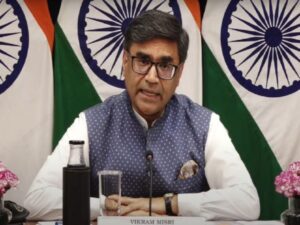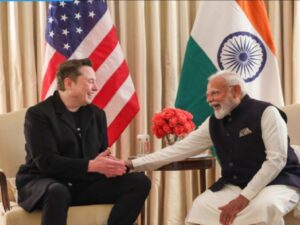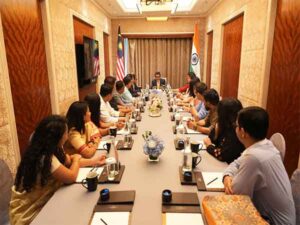China’s peace plan for Ukraine may just be “smoke and mirrors”: Report
Beijing [China], March 6, (ANI): China’s peace plan for the Russian invasion of Ukraine is merely a smokescreen to divert the conversation away from Beijing and toward the US and its allies. Notwithstanding assertions to the contrary, China’s actions over the past year have made it very evident that it does not prioritise acting as the “responsible major power” that it has envisioned for itself, but somewhat limited national interests, reported Asia Times.
China released a 12-point position paper last week on the first anniversary of the Russian invasion of Ukraine outlining their “peace plan” to end the crisis. The document was made public in response to warnings from high-ranking US officials, including Secretary of State Antony Blinken and White House’s national security, Jake Sullivan, that China is considering delivering deadly weapons to Russia, a movie it has so far avoided.
Policymakers in The West are yet to forget the joint statement that Russian President Vladimir Putin and Chinese President Xi Jinping released in the weeks before the invasion, in which they proclaimed their “no-limit partnership.” The main worry of the West is that growing rivalry with China has brought together two authoritarian countries determined to change the world order.
A report in Asia Times read that the accusations are refuted by pundits and party-state media in China. Beijing’s perspective, in their judgement, supports the current order because it has profited the most from it, in contrast to Moscow’s rogue dictatorship. They contend that China’s responsible and impartial stance throughout the war is reflected in the peace plan. The focus on the inviolability of sovereignty, independence, and territorial integrity, as well as its unambiguous support for peaceful sovereignty, independence, and territorial integrity, as well as its unambiguous support for a peaceful resolution and outspoken opposition to nuclear brinkmanship, are some of the reasons why people even interpret it as a direct indictment of Putin.
Using Beijing’s pro-Russian position as an example, retired Senior Colonel Zhou Bo of Tsinghua University refuted Western claims by saying, “China is not out to combat. World War III would have broken out if China had genuinely sided with Russia. China’s biggest contribution has been to refrain from adding fuel to fire and work to promote peace negotiations.”
The standard Chinese phrase for US and NATO military support for Ukraine is “adding fuel to the fire.” Mao Ning, a spokeswoman for the Foreign Ministry, used the phrase last Monday to charge that the US was extending and escalating the conflict by “pouring $32 billion worth of armaments to one side” while levelling untrue accusations against China. She said that this amounted to outright hegemony, a double standard, and complete hypocrisy, according to Asia Times.
The Chinese plan appears to use Ukrainian suffering to advance its narrative battle with the West, offering nothing new to China’s position over the past year and a real roadmap or workable solutions. Talking points like “Cold War mentality,” “exclusive security,” opposing military blocs, unilateral sanctions, and long-arm jurisdiction can only be interpreted this way after years of Pavlovian conditions on every possible Chinese position. According to a report in Asia Times, after speaking with Putin numerous times and having a face-to-face meeting with him in September, Xi Jinping is currently organising a trip to Russia. Volodymyr Zelensky is still awaiting him to answer the call.
Chinese customs data, in contrast to Beijing’s assertions, demonstrate how local businesses are assisting Russia’s war effort by exporting dual-use components, such as a double-digit increase in chip exports, a notable increase in DJI drone exports, or a 400-fold increase in exports of aluminium oxide, a key component in the manufacture of weapons.
Even if these figures are ignored, commerce between China and Russia last year hit a record US 190 billion, up 30 per cent from the year before. Underlying the numbers are European sanctions that support Russia’s economy by allowing China to buy energy cheaply. Beijing has sent almost no humanitarian aid to Kyiv at the same time.
China’s peace plan will remain a mere talk until it is prepared to take action to support Ukraine’s sovereignty and territorial integrity. What might happen after Beijing’s remarks, as Zelensky phrased it in his answer to the Chinese peace initiative, is the question, reported Asia Times.






